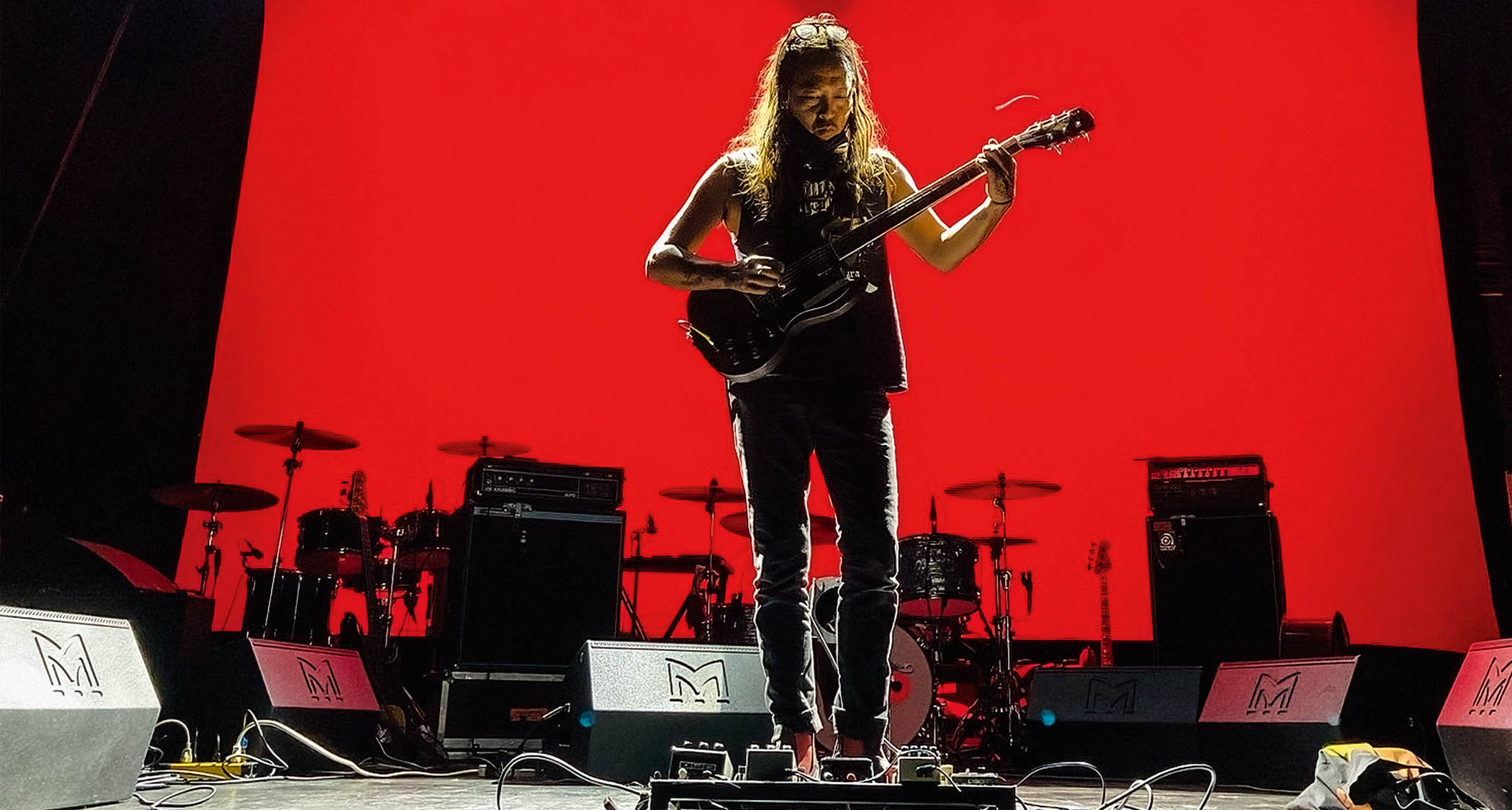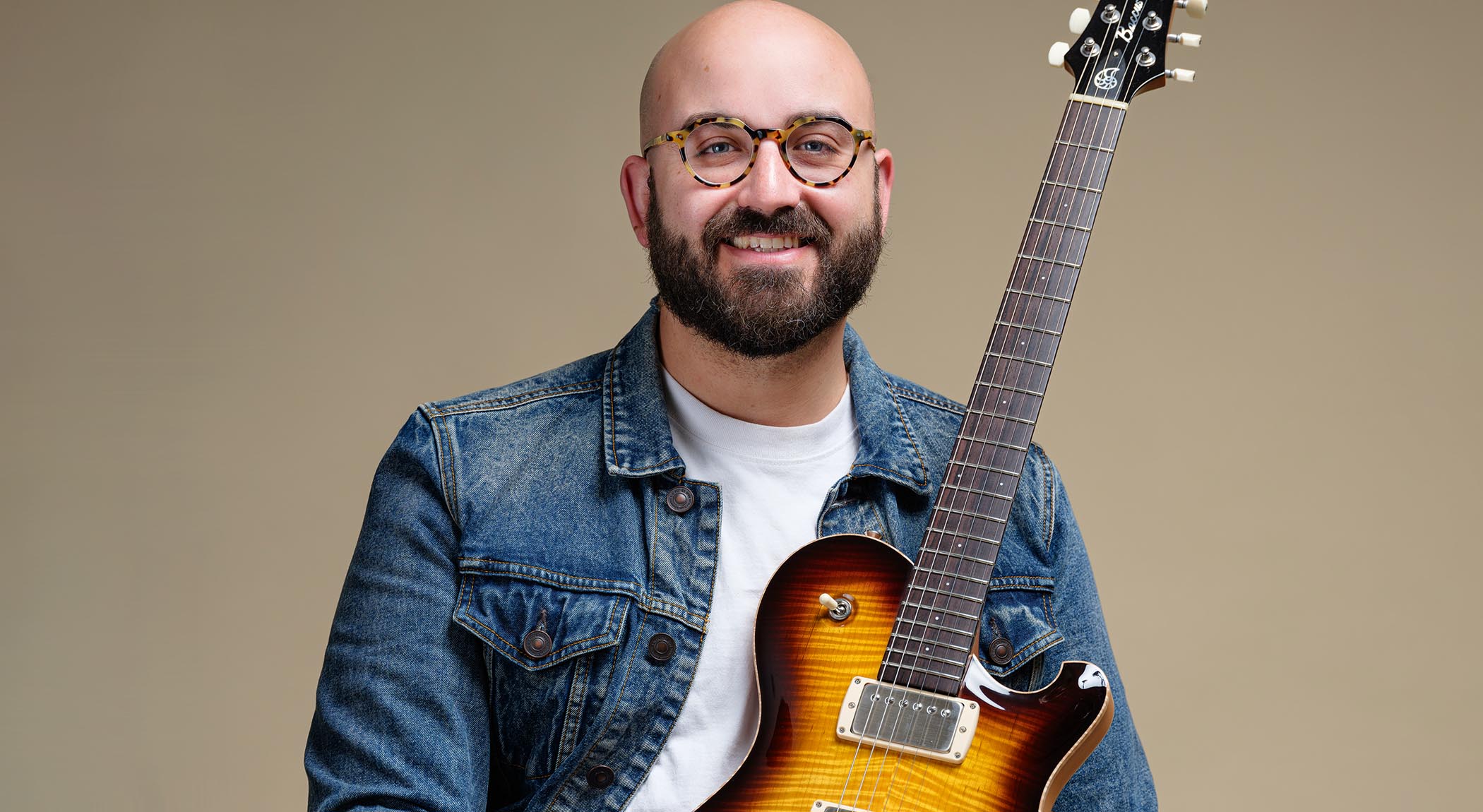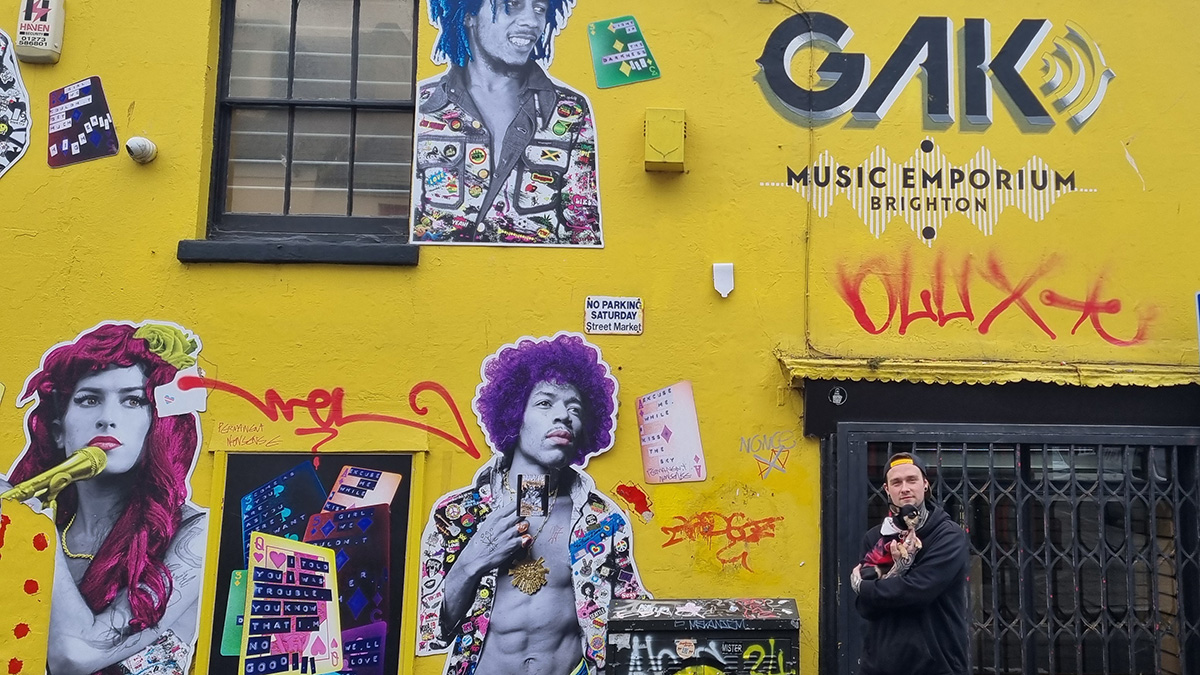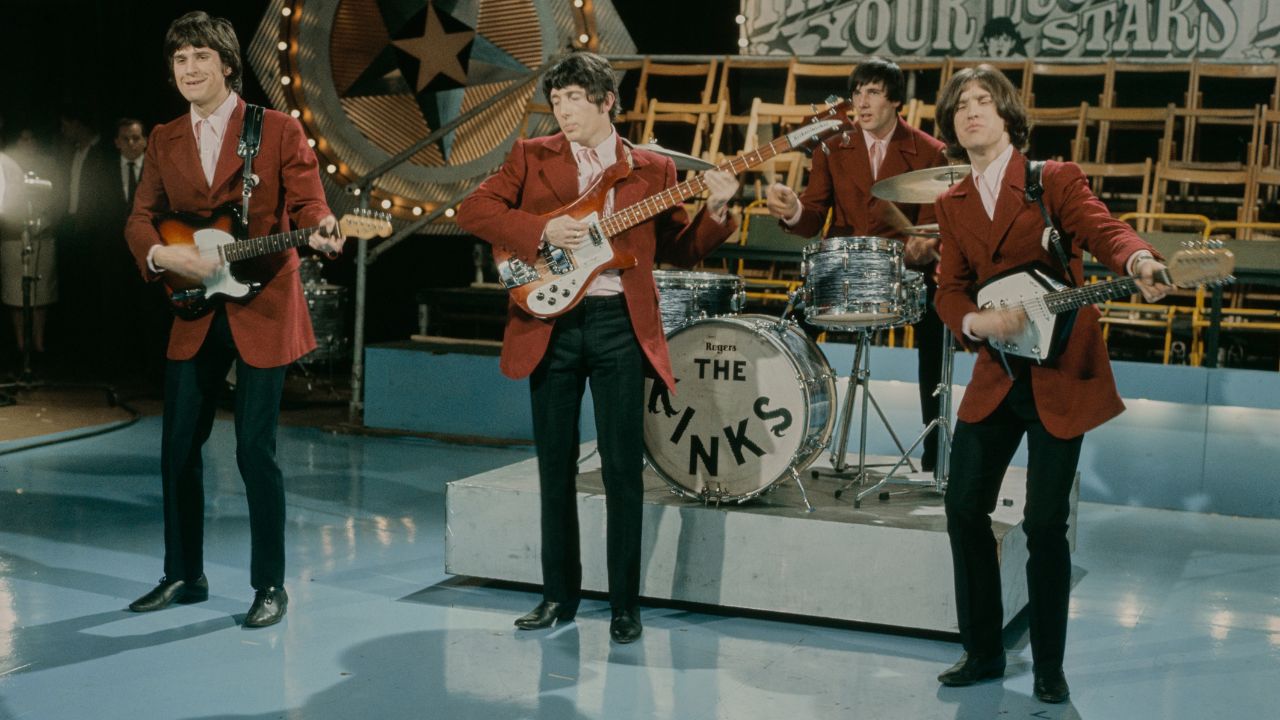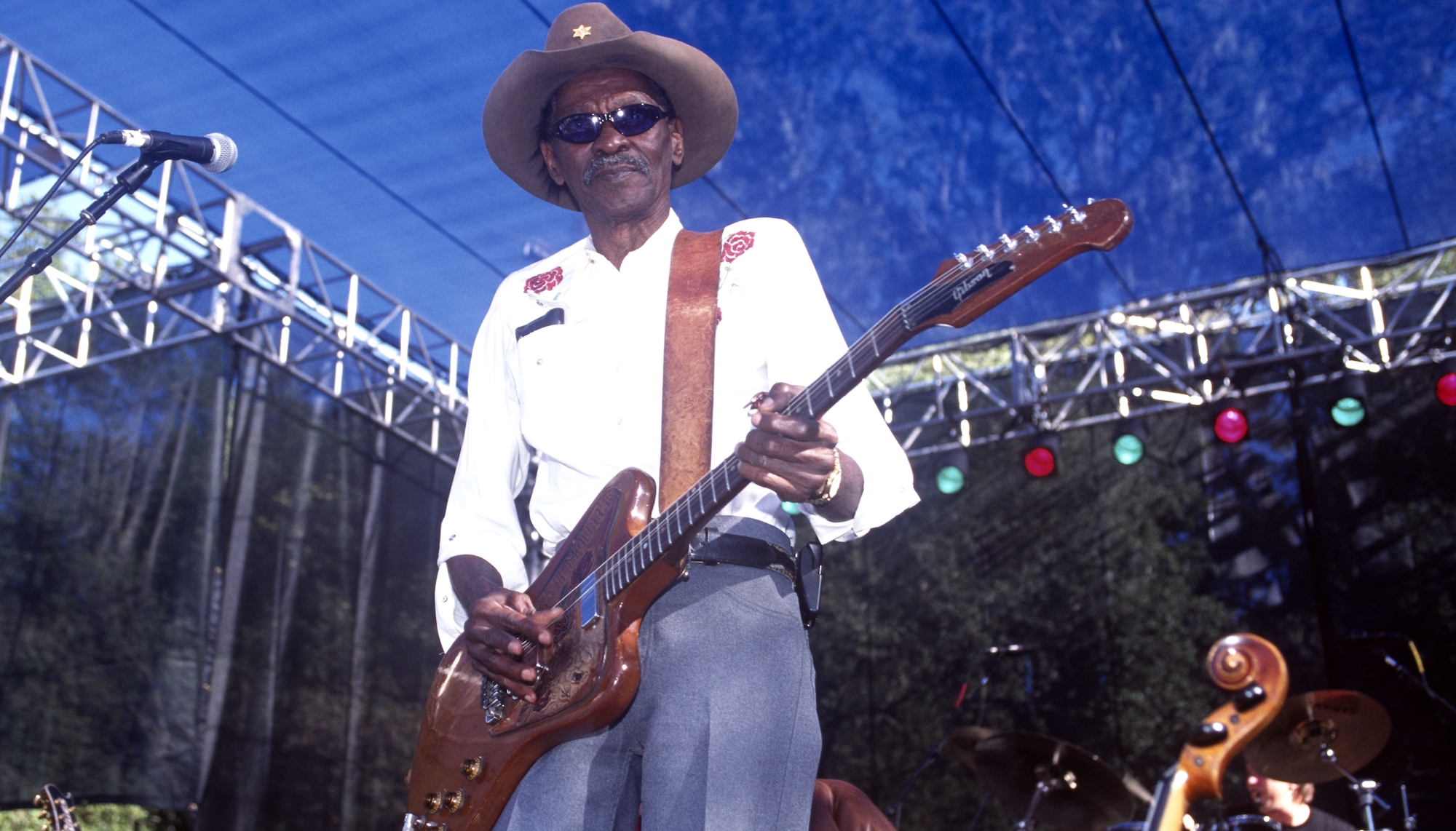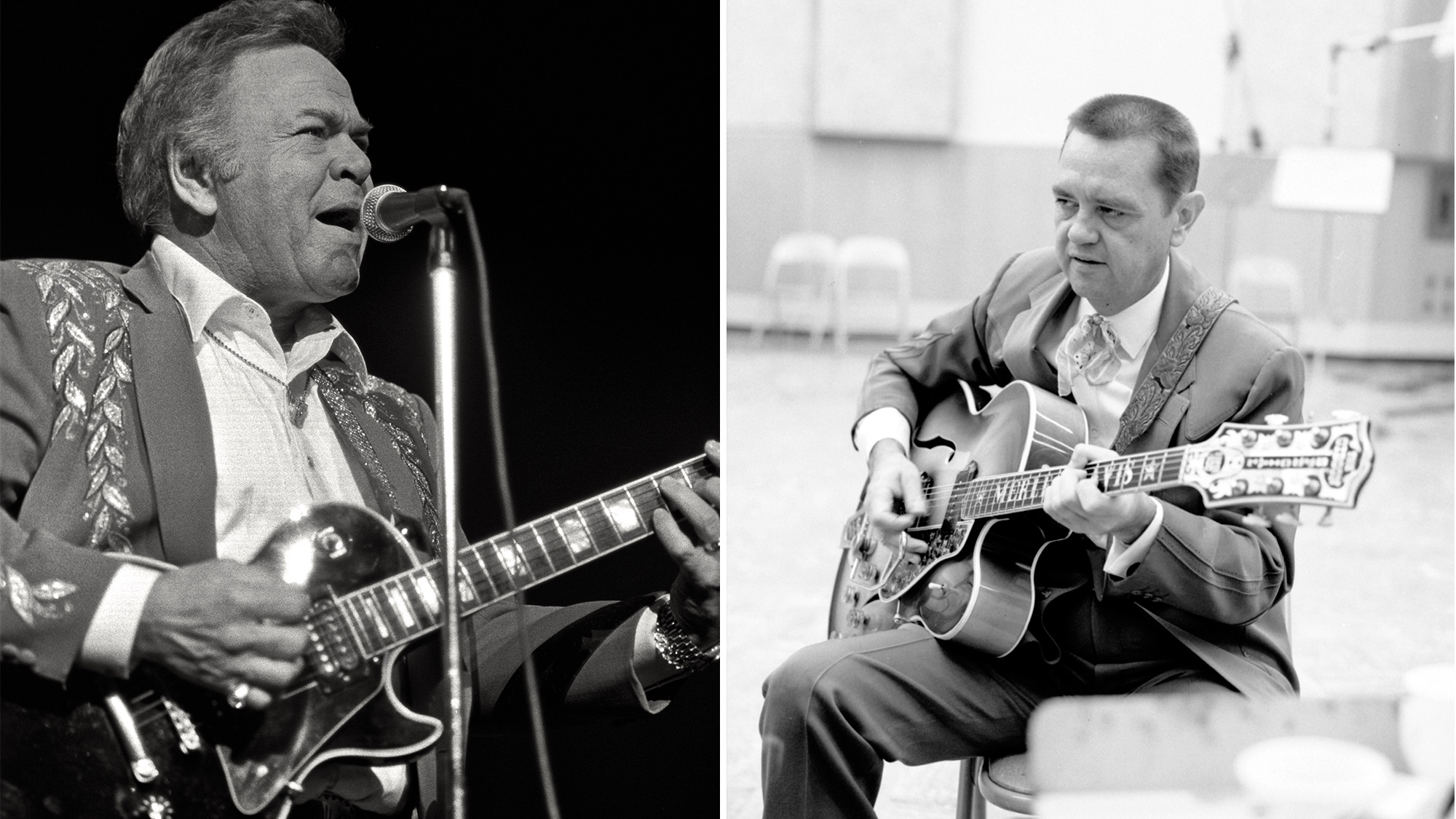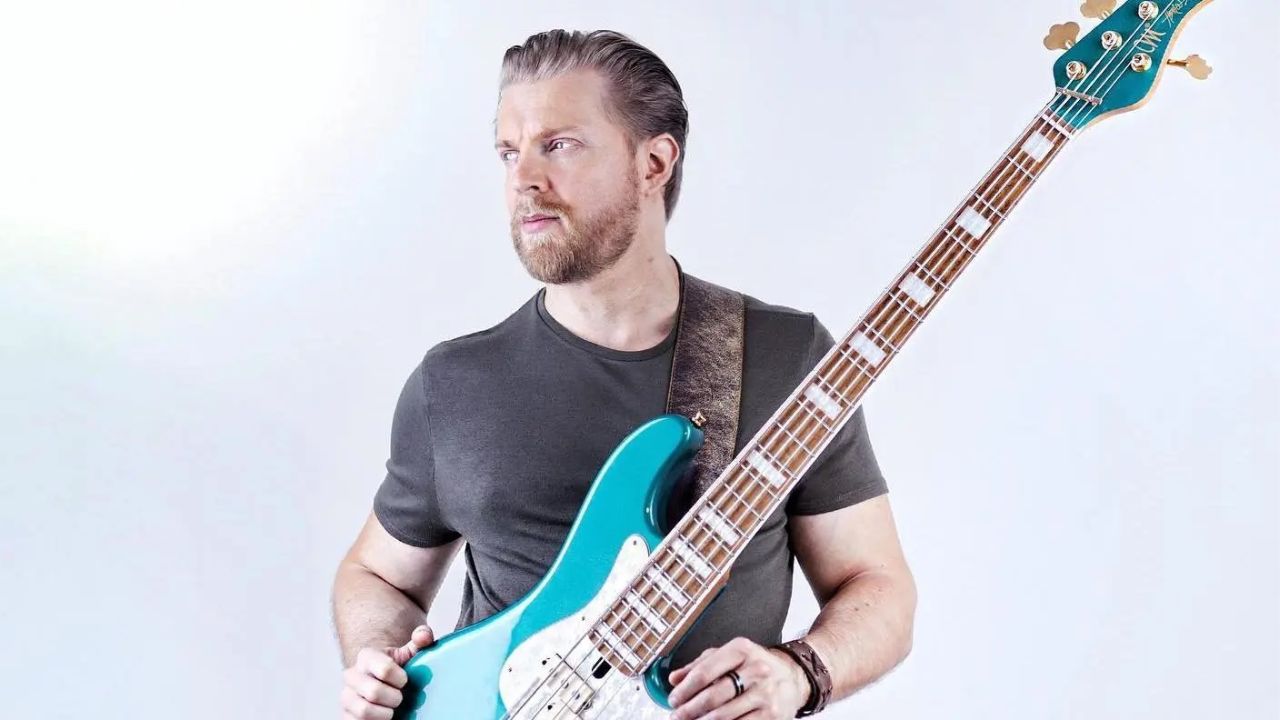Baby Velvet: “This is like the drag version of myself – it’s this version of me that’s fearless and ready to fight”
For her striking and cinematic solo debut, Hannah Crofts makes heartbreak feel powerful. Guys, gals and non-binary pals, meet Baby Velvet
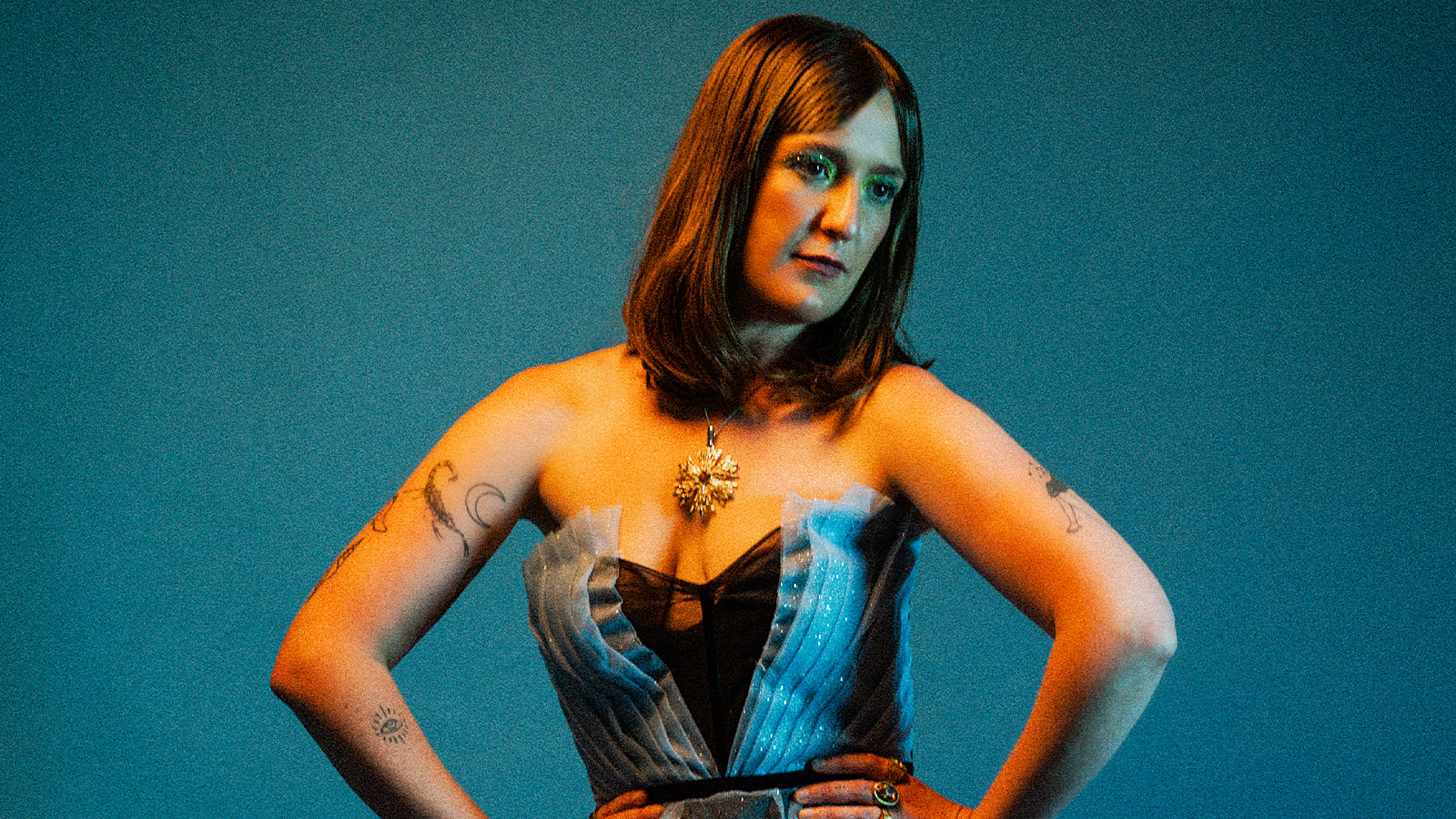
Glossy pop songs about love and heartbreak may not be as chic as they once were, but under her new pseudonym of Baby Velvet, the inimitable Hannah Crofts (who you may know better as the bubbly uke maestro in All Our Exes Live In Texas) aims to make them an essential part of your daily playlist. Her debut album, Please Don’t Be In Love With Someone Else, is so enrapturing, catchy and charismatic that even if you look like the biggest dork on Earth when you sing along to it (and trust us, you will), it’s impossible not succumb to its allure.
Perhaps most striking is the album’s sonic breadth: every track is an opulent eruption of widescreen indie-pop, with towering stacks of soaring vocal harmonies, warbling guitars and shimmery atmospherics. Glimmers of surf-rock and psych-pop are twisted through a lens of unrestrained theatricality
Especially given it origins, Please Don’t Be In Love With Someone Else is a notably impressive effort: not only is it Crofts’ first record as a solo artist, but it was a largely DIY affair, pieced together from stems tracked in Crofts’ bedroom with LA-based producer Kevin Ratterman working remotely. Crofts also didn’t play the guitar before she started writing songs for the record – after she picked up her first proper axe in the early days of Baby Velvet’s genesis, she’d take a lesson, latch onto a new technique, then practice that technique by writing a song around it.
Australian Guitar sat down with Crofts to learn more about her on-the-fly style of fretwork, how such lowkey production birthed such a grandiose listen, and what makes the character of Baby Velvet herself “the punk version” of Crofts.
The record is finally here! How does it feel to be unleashing this beast into the wild?
It feels weird, because I made this entire record in my bedroom. I wrote it all in lockdown, and then when I recorded it with Kevin [Ratterman], my producer, he was in Los Angeles and I was supposed to be there to do it with him, but that couldn’t happen because of COVID, so I just bought all the gear and recorded myself. I just sent him all the stems and we made it that way. Even last year, so much of it was done in lockdown – I was in my pyjamas when I put ‘Call Me’ out [laughs]. In these last two months, I finally started to do shows again, and it’s feeling like, “Oh yeah, this is what being a musician is! I have to wear normal clothes again!”
It’s wild to me that you made this whole record in your bedroom – it’s so colourful and dynamic, with all of these huge, widescreen harmonies and layered guitars. Was that sense of grandeur something you were keen to embrace?
Yes! I picked Kevin as my producer because he made most of Ray LaMontagne’s records – and worked a lot with Jenny O, who I’m obsessed with – and I just love the guitar sounds that he can get. He also really knows the deep love of harmonies that I have. I find him very Los Angeles – it’s very surf-rocky, and even though I’m not a surf-rocker, I wanted that sense of spaciousness. This is really stupid, but I feel like I want [this record] to be the soundtrack for the last scene in Little Miss Sunshine, when they’re driving their car across the interstate and it’s all big and dynamic. That’s kind of what I had in my brain, and that’s why Kevin was so good for it.
So what’s the origin story for Baby Velvet? Where did the idea for this project come from?
I’ve played in All Our Exes Live In Texas for ten years, and we’ve always worked super collaboratively. It’s been great – every decision we’ve ever made has been made between the four of us, musically and stylistically – but when the pandemic hit, it felt like the perfect time for us to go, “Just do whatever you want.” And so Baby Velvet kind of came from going, “Okay, I’m not touring with Exes, I haven’t been for the last two years, this is my opportunity write the record that I’ve always wanted to write.”
Get The Pick Newsletter
All the latest guitar news, interviews, lessons, reviews, deals and more, direct to your inbox!
The name comes from my goddaughter, Velvet. She’s three, and I swear, you’ve never met a leader as fearless as Velvet. She’s kind of like a little punk chick – she’s got a shaved head, she’s got the energy of a rugby player... If she falls over and scrapes her knee, she just gets up and starts running again. Her mum said that she really wanted to raise her so that she never has anxiety. And that’s such a beautiful idea – that this kid is never anxious or nervous about stuff – and I want that to come across in Baby Velvet. It’s like the drag version of myself – it’s this version of me that’s fearless, ready to fall over and fight. It’s the punk version of me.
As songwriter, how did you find that this record really pushed your artistry to new heights?
Well I play ukulele in All Our Exes, and that kind of happened out of necessity. We got booked for our first show, and none of us could play any instruments – Elana [Stone] could play accordion, but we literally went to the shop and bought instruments, then played them for our first gig, and then continued that. So it’s never been my dream to play ukulele in a band, and it wasn’t something that I necessarily made a conscious decision about – but for this project, I knew that I really wanted to play guitar.
I couldn’t really play the guitar three years ago, but I’d always dreamt of doing so, so I bought a guitar and had some lessons, and then I’d write songs around that. If you only know how to do one thing on one instrument, then your songs will keep sounding the same. But then if you have lessons and you learn new techniques, then you can base your new songs around the new things that you learn.
So you’d learn a new technique, then practice it by writing a song with that at the forefront?
Yeah, there was heaps of that, which was great. It was a really nice way to write the songs that I’d been wanting to write for a while, but never had the skills or techniques to actually do. And I’m still learning, but it’s a gratifying process. When I’m playing the ukulele in Exes, I just strum along like “chung, chung, chung” the whole time, and so I think my time and my ability to comp are quite good. That was easy to translate to the guitar, but then doing anything other than that – any kind of lead parts or melodies – that’s been the hardest part. That’s the part I’m still learning, but it’s also the most fun.
Do you still play with your Tele and your acoustic parlour?
Yeah! I got a Maton parlour the other day. It’s beautiful. I have a little Kay parlour as well, but the Kay has a baseball bat-sized neck – it’s like a little hybrid – so it’s fun to play, but barre chords are extremely painful. So I got a beautiful Maton to help with that.
What were some of the staples on your pedalboard for this record?
I’m not very cool in the gear world, but it’s basically a distortion, a reverb and my tuner. I have a lead guitarist in my band, Brian, and when I’m playing the songs live, we try to recreate the parts on the album where I’m doing a lot of the ambient chord comping. I just want that to sound big and open and lush – and that process, for me, is the easiest way to get that sound. And then Brian can do all the fun little noodly bits throughout it.
Did you play everything on the record?
I did a lot of the guitar and all of the singing, and then Kevin did some of the extra slide guitar bits, the drums and the bass. It was an awesome dynamic because I’d be like, “I can’t do that bit,” and he’d be like, “No sweat, I can do it!” And then he’d be like, “Now I can’t do this, you do it!”

Ellie Robinson is an Australian writer, editor and dog enthusiast with a keen ear for pop-rock and a keen tongue for actual Pop Rocks. Her bylines include music rag staples like NME, BLUNT, Mixdown and, of course, Australian Guitar (where she also serves as Editor-at-Large), but also less expected fare like TV Soap and Snowboarding Australia. Her go-to guitar is a Fender Player Tele, which, controversially, she only picked up after she'd joined the team at Australian Guitar. Before then, Ellie was a keyboardist – thankfully, the AG crew helped her see the light…
- Ellie RobinsonEditor-at-Large, Australian Guitar Magazine
“Muddy Waters and BB King, I knew ’em before they passed away, and they told me, ‘Man, if you outlive me, just try to keep the blues alive’”: Buddy Guy has officially retired from touring – but he’s back on the big screen in Michael B. Jordan’s Sinners
“I can’t believe how complicated the parts she’s playing are. You just never know how those are coming to be in the studio”: FINNEAS reveals his surprise guitar hero whose playing left him scratching his head
